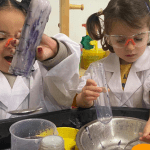

Our Wimbledon Nursery Manager, Tatiana, shares the benefits a key person has for children, parents and staff.
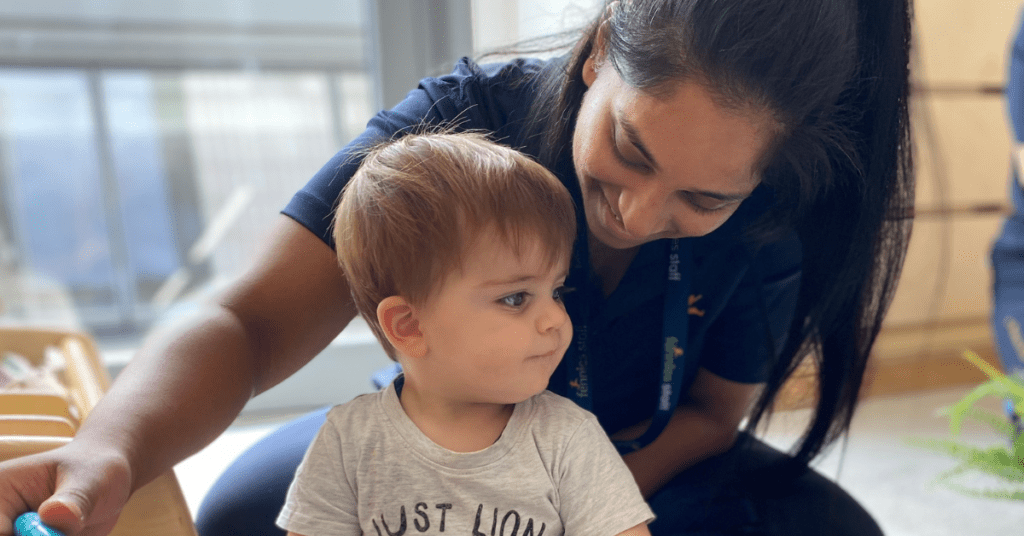

If you work in a nursery, you’ll be more than familiar with a key person’s role. However, there are lots of reasons behind the key person approach that may be helpful for you to know, especially if you are in a nursery setting and have a key child yourself.
Firstly, let’s start with what is it that makes a person ‘key’? The word ‘key’ is important because it implies a crucial role of critical importance, and I would say, that for the children at Fennies, the role of a key person is nothing short of fundamental for their progress, development and emotional stability.
In this blog post, I will explore what a key person’s responsibilities are and the benefits they provide for children and parents to promote emotional development in early education.
The key person approach is a fundamental part of the early years curriculum and is primarily influenced by the work and theories of Early Childhood Research, Peter Elfer. Elfer’s research places importance on a nurturing environment contributing to the effectiveness of the key person approach.
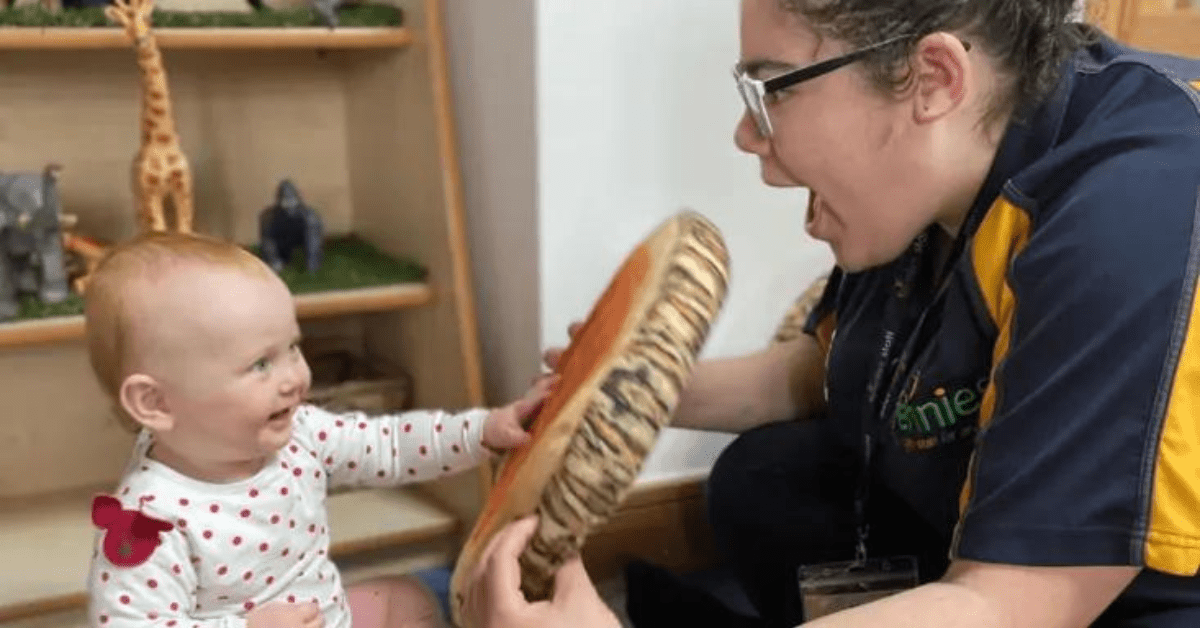

From being at the forefront of the settling in and transition process to soothing, comforting, and being that ‘safe’ place children can go to. Being a key person is about being in tune with a child’s needs, simply by knowing and understanding each young child by picking up on visual cues.
The key person role is all about knowing your key child inside out, whether this is recognising when they are behaving out of character or when they’re upset or unwell. A key person is someone who has a child’s best interests at heart — someone who thinks hard about how they can help each child become the very best version of themselves.
So, in what way does the key person role effectively support a child’s progress? Here are some of the main benefits to bear in mind to help enhance your practice.
One of the main key person’s responsibilities is to familiarise themselves with each child’s individual interests, using that as a basis for planning, learning and extending their current knowledge. Children are much more likely to show interest in particular learning activities when they are inspired by something they already have an interest in. This is an effective way to challenge and stretch their knowledge continuously.
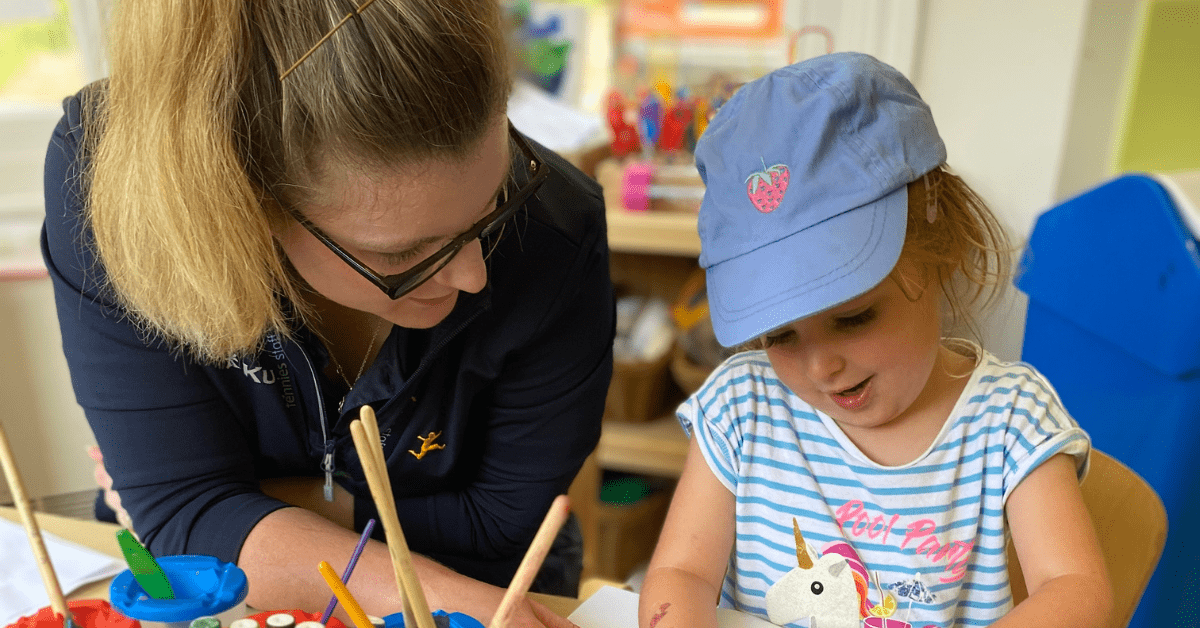

Through play, a key person will aim to encourage independence and critical thinking through the use of open-ended questioning and using their skills and knowledge to scaffold the child’s learning.
A key person has a responsibility to not only build strong relationships with their key children but with their parents and carers. This relationship must be built on trust and transparency.
Parents need to be confident in their child’s key person’s judgement, ability, and knowledge in order to be completely at ease whilst their child is at nursery.
Parents want the best for their children and a key person can provide this. The key person fully understands the child’s learning, development and individual care needs, which in turn, gives the child confidence to progress in all areas.
Here are some of the main benefits a key person offers parents:
The Birth to 5 Matters guidance describes the key person approach as a “triangle of trust with the child and family.” As previously mentioned, one of the main skills a key person needs to have is a strong relationship with their parents or carer.
The reason for this is that parents need to have complete confidence in their child’s key person as there may be occasions when they need to have sensitive conversations surrounding the child’s life and home background.


As early years practitioners, our roles are not only to support children but to support each one of our families and parents too. We recognise that building this level of trust will provide extra support for their well-being which will play a huge role in how the children are feeling.
The communication parents have with a key person provides essential insight into the child’s learning and development. When parents understand the progress that has taken place at the nursery, this then provides opportunities for them to support learning and development at home.
For example, a key person lets a parent know that their child’s next learning goal is linked to language development and provides some helpful suggestions around activities and conversations they can have at home to help support this.
There are many ways a key person approach can help support a child’s progress. Here’s just a few of these benefits:
The repetition of a familiar and predictable routine helps support a child’s personal, social and emotional development, one of the core areas, which helps set the foundations for future learning.
A child’s key person is ultimately there to help extend their development and learning whilst supporting them to adopt life skills such as resilience, independence, and self-confidence.
Studies show that children who have at least one close relationship with a parent or carer are less likely to experience emotional or behavioural issues during their childhood. Although a key person is not the child’s parent, they can also play a vital role by offering a similar positive relationship.
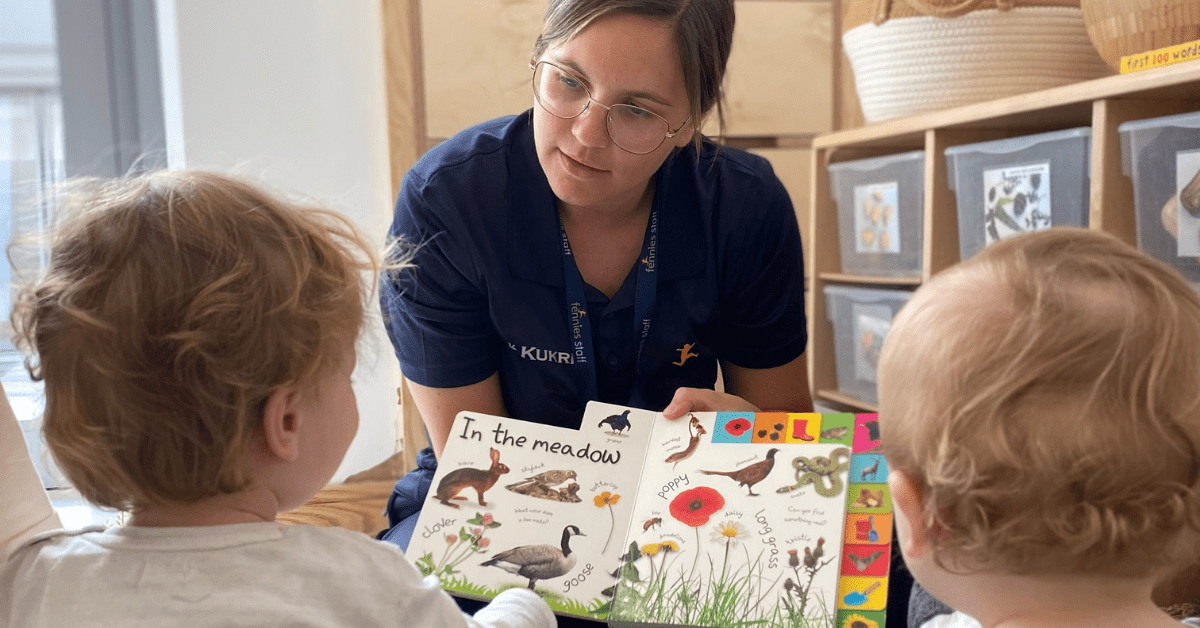

A child's key person is an integral part of creating a welcoming and nurturing environment, allowing children more opportunities to develop healthy attachments throughout their early childhood.
Children learn and develop at different rates. Part of an effective key person approach is to understand the key child’s progress, current interests and emotional needs. When a key person has developed this understanding, they are then able to tailor their care to each child’s specific needs. This can include creating activities around the child’s interests, mirroring their nursery routine to their home routine and incorporating ways they can continuously expand their learning.
As a parent myself, nothing shows how effective a key person approach is as much as when I see my own child’s excited reaction to her key person every morning. It’s also the constant reference she makes to them at the weekends or in their absence, her eagerness to go into the nursery to see them and her non-hesitant approach to seeking help or support in a time of need.
If you were to ask me what a child would say their key person meant to them? It’s a warm smile, a comforting hug and a friend. A person who ultimately will help them develop, grow, and foster a genuine passion for learning that will lead into their adult lives contributing to successful futures.


Nursery Manager


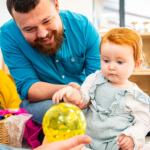



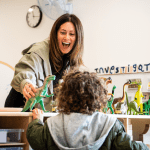

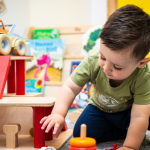



View All
This website uses cookies so that we can provide you with the best user experience possible. Cookie information is stored in your browser and performs functions such as recognising you when you return to our website and helping our team to understand which sections of the website you find most interesting and useful.
You can read out full privacy policy here
Strictly Necessary Cookie should be enabled at all times so that we can save your preferences for cookie settings.
If you disable this cookie, we will not be able to save your preferences. This means that every time you visit this website you will need to enable or disable cookies again.